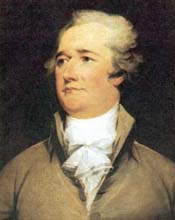by Rob Natelson
This post first appeared on April 8, 2024 at The Originalism Blog (University of San Diego)
Those of us who are originalist scholars should do more than read what the Constitution’s drafters and ratifiers said and wrote. We also should read what they read. This enables us to produce a better product for the lawyers and judges who must apply the Constitution but cannot devote their lives to perusing ancient sources.
I was reminded of this point recently when reading about Richard Hooker.
“The Judicious Hooker,” as John Locke called him, was a highly regarded 16th century philosopher and theologian. He is remembered principally for his Of the Laws of Ecclesiastical Polity, a defense of the Church of England and its doctrine. It was on the list of works recommended in 1783 for congressional purchase by a committee consisting of James Madison of Virginia, Hugh Williamson of North Carolina, and Thomas Mifflin of Pennsylvania—all three of whom later served at the Constitutional Convention.
For the founding generation of Americans, Hooker’s work may have had more value for its contributions to law rather than religion. I found evidence of this when examining the book of Ecclesiastical Policy entitled, “Concerning Laws, and their several kinds in general.” The second chapter contains the following observations:
“All these things that are, have some operation not violent or casual [i.e., by chance]: Neither doth any thing ever begin to exercise the same, without some fore-conceived end for which it worketh. And the end which it worketh for, is not obtained, unless the work be also fit to obtain it by; for unto every end, every operation will not serve. That which doth assign unto each thing the kind, that which doth moderate [i.e., control] the force and power, that which doth appoint the form and measure of working, the same we term a Law: So that no certain end could ever be attained, unless the Actions whereby it is attained were regular, that is to say, made suitable, fit, and correspondent unto their end by some Canon, Rule or Law.”
In other words, an outcome that is not merely random is the product of a regular action (means) that is “suitable, fit, and correspondent” to the outcome. That means is law. Hooker’s description is broad enough to include natural laws such as gravitation and inertia, and man-made laws.
Perhaps Hooker’s language reminds you, as it reminded me, of Alexander Hamilton’s defense of the Necessary and Proper Clause in Federalist No. 33:
“[The clause is] only declaratory of a truth which would have resulted by necessary and unavoidable implication from the very act of constituting a federal government, and vesting it with certain specified powers. . . .
What is a power, but the ability or faculty of doing a thing? What is the ability to do a thing, but the power of employing the means necessary to its execution? What is a LEGISLATIVE power, but a power of making LAWS? What are the means to execute a LEGISLATIVE power but LAWS? What is the power of laying and collecting taxes, but a legislative power, or a power of making laws, to lay and collect taxes? What are the proper means of executing such a power, but necessary and proper laws?”
Or of this passage in Hamilton’s opinion on the constitutionality of the a national bank:
“Now it appears to the Secretary of the Treasury [i.e., himself] that this general principle is inherent in the very definition of government, and essential to every step of progress to be made by that of the United States, namely: That every power vested in a government is in its nature sovereign, and includes, by force of the term, a right to employ all the means requisite and fairly applicable to the attainment of the ends of such power, and which are not precluded by restrictions and exceptions specified in the Constitution, or not immoral, or not contrary to the essential ends of political society.”
Thus, to Hamilton, suitable laws were the means by which Congress exercised its powers—the exercise being its immediate end (and serving the ultimate ends of justice or the general welfare). If Hamilton did not get this concept directly from Hooker, he likely picked it up because it was “in the air.” Perhaps more than in in the air: Hamilton’s Anti-Federalist opponent “Cato” (Gov. George Clinton) quoted another observation from Hooker in a Nov. 22, 1787 essay in the New York Journal.
In 2010, Gary Lawson, Guy Seidman, Geoff Miller and I published The Origins of the Necessary and Proper Clause, which, unfortunately, did not mention the potential debt to Hooker. We did conclude that in 18th century legal language a law was “necessary” to an enumerated power if incidental to that power—that is, a subordinate but customary or reasonably necessary means of exercising the power. We also pointed out that 18th century enumerated-power documents often employed synonyms for “proper” like “suitable” and “fit”—two of the three words used by Hooker.
Eighteenth-century enumerated powers documents might require only that actions be necessary/needful . . . or only that they be proper/meet/suitable/fit . . . or that they be either one . . . or—as both in Hooker and in the Constitution—that they be both.
While I’m on an etymological roll, let me toss once more: In Hooker’s time, English enumerated-power documents often were written in Latin. The Latin predecessor to “necessary and proper” was necessaria et oportuna. In Latin, necessarius frequently means one’s relative or ancillary. Oportuna is the adjectival variant of the verb oportere, which means to be fitting or appropriate.








